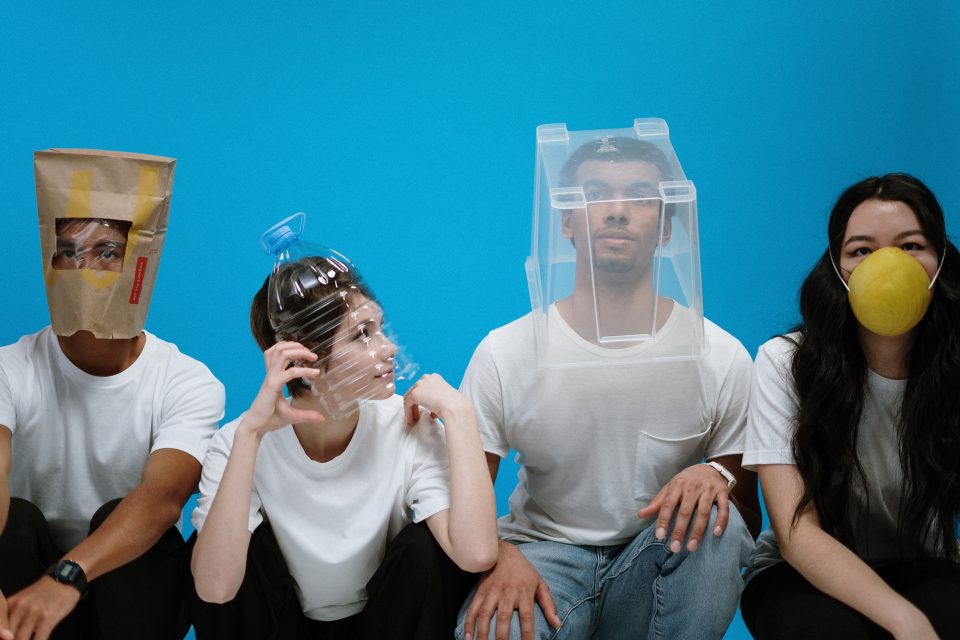The world has changed.
Our perceptions and priorities have shifted. We seem to have tuned in to a bizarre reality TV show floating between The Simpsons reruns and their seemingly prophetic clues to future events and CNN, which is adjusting our mindsets to accept fear and social distancing, lockdowns, and facemasks along with testing vaccines, conspiracies, and hidden agendas.
Is this the “new normal” so many people are talking about?
Let me go on the record here to say I’m tired of people saying the phrase “new normal”. Forbes recently commented on this, saying, “it’s simply a paradox. If something is new, can it really be considered totally normal? And can normal things be brand new? Perhaps more fundamentally, the phrase assumes there’s such a thing as normal in the first place – a sort of blanket status quo: parameters outside of which everything is a bit strange.”
It’s hard to know who or what to believe anymore. Everyone’s an expert on something on Facebook. Those who present their own version of facts are banned on YouTube. Asking questions makes you a conspiracy theorist. Or stupid. Or both. So stay at home people! The sky is falling!
It feels like the Twilight Zone.
But one thing does seem to be clear in all this muddy confusion – the global economy as we once knew it has come to a screeching halt and many observers are suggesting the fallout is likely to be more devastating to more people than any pandemic could ever be.
Jobs have been lost and businesses have closed around the world. Cities are shut down. Supply chains are breaking, food isn’t being put on tables, people are starving, bills are going unpaid, debt is increasing, stress is mounting, communities are suffering, racial divides are growing, and domestic abuse and suicides are through the roof.
At least the shelves are full of toilet paper again, though.
Is this what we have to look forward to in a “new normal”?
It doesn’t have to be.
McKinsey & Company published a report back in 2009, after the Global Financial Crisis of 2007/2008, which said, “the business landscape has changed fundamentally; tomorrow’s environment will be different, but no less rich in possibilities for those who are prepared.”
That could have been written yesterday.
The message is clear – be prepared.
That’s why Seven Stones Indonesia is focused on growing our commitment to a more environmentally friendly way of living and working for our people, our clients, our partners, and our community. That’s why we’re supporting initiatives to create and manage businesses that can grow profitably in a “new normal”.
The good news is, we are not alone.
Tri Hita Karana
Groups of like-minded souls, especially in Bali where we’re based, have stepped up to the plate. The BGreener Community, for example, is a group of mindful, community-oriented professionals and business owners in Indonesia who believe tourism can have a positive impact on guests, local communities and the environment. They regularly meet to develop ways to support each other, solve problems, and make a positive environmental and social impact.
They’ve just released something called “The Bali Pledge”, a sustainable initiative aimed at raising awareness to preserve Bali’s culture, land, and customs, and, as such, are in line with the concept of Tri Hita Karana, which means three reasons for prosperity and well-being. It’s about finding balance.
The three aspects to Tri Hita Karana are:
1) Harmony among people
2) Harmony with nature and the environment
3) Harmony with God
It’s a philosophy and tradition with significant meaning in Bali, where the idea of balance and harmony can be seen in the island’s culture and traditions.
Could Tri Hita Karana be our “new normal”? Everywhere?
Changing Perceptions
There are other initiatives dedicated to supporting those in need and the less fortunate in Bali. “Give Them A Future” has projects in and around Kintamani; “Project Nasi” supports families in need in Legian, Petitenget, and Seminyak; “Bali Stay Safe” focuses on sanitising orphanages and schools; “Crisis Kitchen Bali”, “Bali C19 Solidarity”, “Solemen”, and “Scholars Of Sustenance” are all giving back to local communities and helping those who need it most. You can find links to each of these organisations are at the bottom of this article.
Could greater social awareness, love, and care be the “new normal”?
Could our perceptions change and our society be restructured to benefit people and the planet we live on?
These are all hypothetical questions, of course, and we’re not suggesting we know what all of the answers will be, but we do follow trends and we do keep our eyes and ears open.
And we care.
Prioritising the Environment
According to a recent article published by the BBC, “more than 200 top UK firms and investors are calling on the government to deliver a COVID-19 recovery plan that prioritises the environment.” In effect, it’s using the current crisis as “a springboard to propel a green economy.”
The Asia Times reports that this global crisis, “has exposed the unsustainability of prevailing economic and environmental conditions and the frailty of the carbon-based energy business when demand suddenly falls away. It has illuminated and deepened chasms of inequality across regions, countries, and communities. It has made clear that we cannot sustain thriving economies without our health, our safety, and our security. It has revealed heightened vulnerability spurred by human encroachment on natural ecosystems.”
Smart Solutions
A global, eco-conscious momentum seems to be gathering at a pace in line with the pandemic itself.
The Asia times goes on to suggest we have important choices to make. “It is imperative to ensure that recovery resources are directed to smart, forward-looking solutions,” it says. “We must shift the flow of capital to protect people, to protect our climate, and to protect our environment in ways that generate jobs, secure livelihoods, and build resilience across every community.”
The Green Finance Platform ran an article on how industries in Asia are trying to cope with the seismic shift away from what is being labelled “non-essential businesses” and the disruption to their operations and supply chains.
It suggests, “Opportunities related to the development of new low-carbon products and services and improving resource efficiency are the most commonly cited opportunities identified by companies in the region, along with other tangible benefits such as cost-saving and improving brand reputation.”
Seven Stones Indonesia
This is where we can help.
Seven Stones Indonesia provides progressive, smart, collaborative, relevant investment and business solutions. We help our clients, partners, employees, and community create a better world. We focus on what matters most to them today and we futureproof them by working together to help make doing business in Indonesia and beyond more efficient and more effective.
If you’d like more information or would like to sit down with us to discuss how we can help you succeed in these interesting times, we’d love to hear from you.
Email to hello@sevenstonesindonesia.com
Websites to visit:
www.gofundme.com/f/project-nasi-bali-covid19
www.crowdfunder.co.uk/the-crisis-kitchen-feeding-bali-through-covid19
Photo Courtesy by Cottonbro from Pexels (blue background) and Andrea Piacquadio from Pexels (collage)
Sources: Forbes, Gapura Bali, McKinsey & Company, BBC, Asia Times, Green Finance Platform, The Jakarta Post




